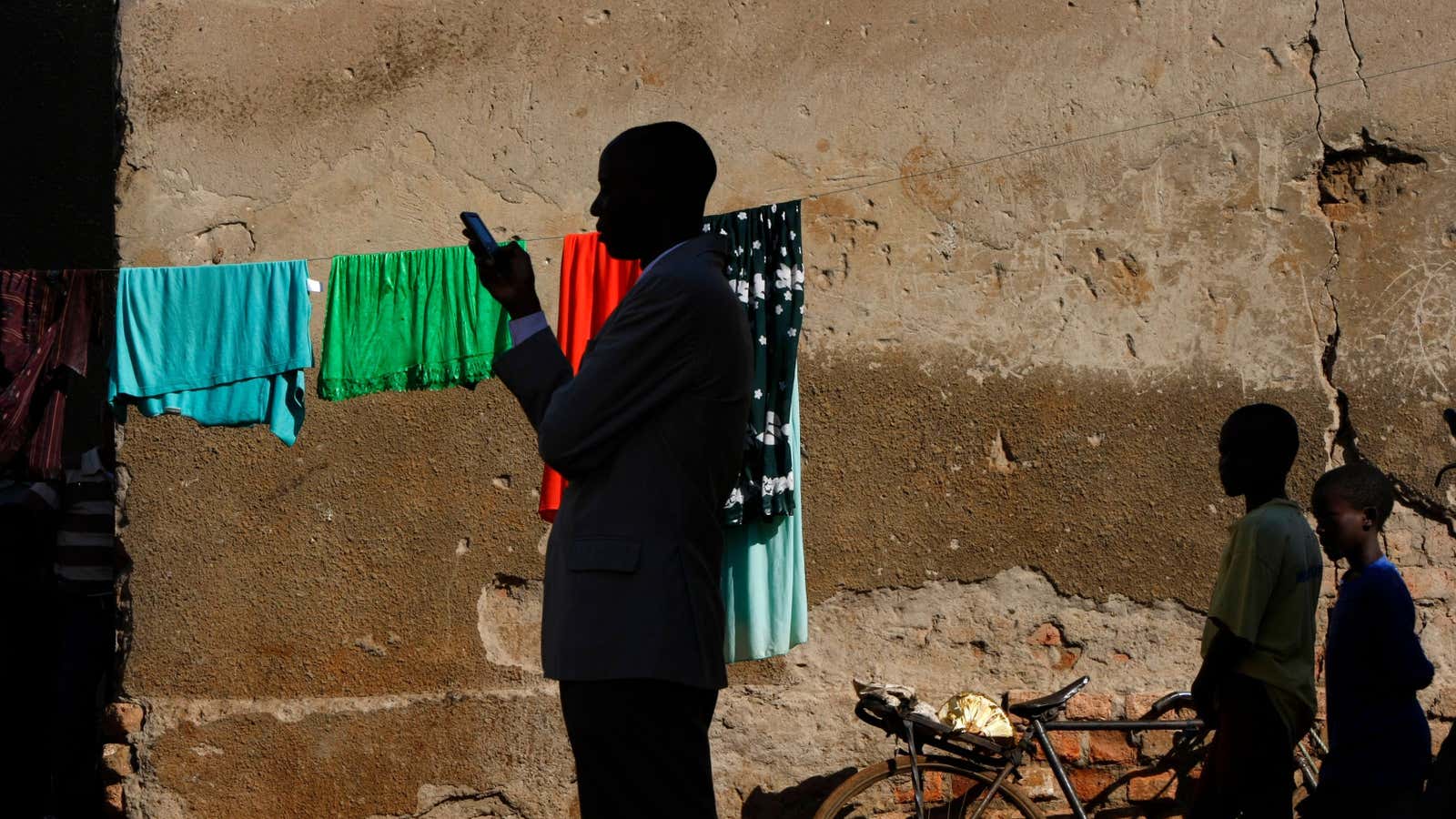The first prediction of the impact of Uganda’s tax on social media and mobile money is in—and it’s grim.
In early July, the East African nation introduced a tax on users accessing 60 websites and social media apps from their phones, including WhatsApp, Twitter, and Facebook. The levy is enforced by telecom companies, which deduct a daily or weekly fee whenever a user accesses the targeted apps. The government also increased excise duty fees on mobile money transactions from 10% to 15%. These measures, it said, would reduce capital flight and improve the country’s tax-to-GDP ratio. Critics contend the levy puts an undue burden on the poor and is aimed at curbing government criticism.
These moves are likely to prove counterproductive, according to a new study from Canada-based telecoms intelligence firm Research ICT Solutions. The report shows the taxation could undermine economic growth in Uganda, reduce mobile operators’ income, and jeopardize thousands of jobs in the digital sector.
The duties have already contributed to a decline in mobile money transactions. Operators also reported a drop of 20% in subscribers using data since the imposition of the social media tax (many users have been getting around the levy by using virtual private networks). Factoring in both the economic impact of broadband penetration and the price elasticity of mobile internet use, Research ICT Solution says the ad hoc fees could cost the Ugandan economy $750 million this year alone.
The government’s strategy to extend the tax revenue is effectively sanctioning a sector that has the potential to drive growth, the firm contends. Increased fees for poor users will dampen their consumption, limit financial inclusion, and in turn, reduce operators’ revenues and broadband adoption. They say the tax is also “regressive” because it imposes the same amount on people in big cities like Kampala as it does on those in villages and small towns like Bukedi.
“The new taxes are not broad-based, single out the ICT sector, penalize positive externalities, are not simple to enforce, distort competition and are regressive,” the authors said.
Critics see the tax as a way to silence growing online opposition to 73-year-old president Yoweri Museveni, who has been in power for 32 years. Museveni has openly said he wants the levy to stop online “gossip.”
The tax has been met with intense online and offline protest, which has only solidified the state’s position. This dissent has intensified in recent weeks as the arrest and alleged torture of Robert Kyagulanyi, a musician-turned-politician popularly known as Bobi Wine, has roiled the country.
Uganda’s economic growth has slowed in recent years, according to the World Bank, from an average annual growth of 4.5% in the five years to 2016, compared to the annual 7% achieved during the 1990s. Domestic revenue collection has also lagged, hindering the ability to finance much-needed infrastructure projects and social safety nets. The government may feel that lobbing taxes on its communications and technology sector is an innovative way to increase cash revenue, but as mobile telephony’s impact on progress in Africa continues to grow, the opposite might actually be true.
